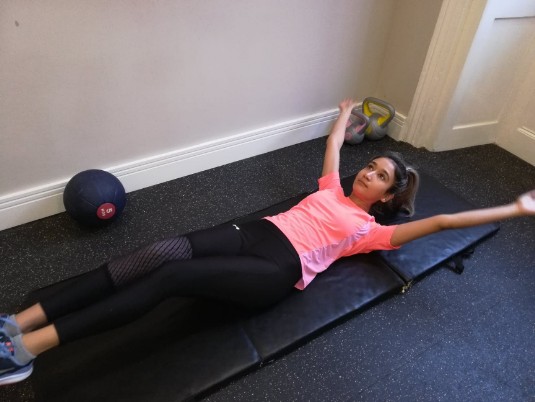How to Train For a 5K Run
More info : > How to series :
5K run in Exeter
Preparing for your first 5K run is mainly influenced by your previous running experience. You may well have been running purely for fitness and never before considered taking part in an actual 5K event.
The following advice is for someone who has been completing runs of 15-20 minutes two or three times a week.
1. Take it slow and easy in the early stages of your training. Three months is the perfect amount of time to get ready. You risk injury by trying to do too much too soon too much too soon.
2. Run three times a week for the first four weeks. This will be running and not jogging. You will need to take a rest day in between runs, especially in the early stages of your training.
An example of this would be:
Running days are Tuesday, Thursday and Saturday.
Rest days are Monday, Wednesday, Friday, and Sunday.
Do not be concerned at the distance you run. Concentrate instead on the time you're running. It will be much easier to plan your training programme like this.
3. In the first three months make your longer runs fall on the weekend. An example would be:
1. Tuesday-15 minute run.
2. Thursday-20 minute run.
3. Saturday-30 minute run.
4. In your second month you will run four days a week.
1. Tuesday-20 minute run.
2. Thursday-25 minute run.
3. Friday-30 minute run.
4. Saturday-35 minute run.
5. Sunday, Monday, Wednesday-rest days.
Always take a rest day after your longest run . Taking time to recover is is very important.
5. Weeks nine and 10 will be the most important for training- the first two weeks of month three. For these two weeks, you will train for five days and rest for two.
1. Monday-20 minute run.
2. Tuesday-25 minute run.
3. Thursday-30 minute run.
4. Friday-20 minute run.
5. Saturday-40 minute run.
6. Wednesday and Sunday-rest days.
Note there is a day of rest in the middle of the week. In addition you have a short run on the day before your longest run after which you will have another rest day.
6. At week nine start to run a faster than your usual pace. Do your Saturday 40-minute run a little faster than the other runs of the week. This will give you're an idea of what I will be like on race day.
7. Week 10 is the same as week nine except the Saturday run will be 50 minutes at a fairly fast steady pace. This run will be longer than the actual race itself. When that run is completed you will feel like you're ready for race day.
8. Reduce your training for the last two weeks leading up to your race. You need rest now.
9. For week 11:
1. Tuesday-run 25 minutes.
2. Thursday-run 25 minutes.
3. Friday-run 20 minutes.
4. Saturday-run 35 minutes.
5. Monday, Wednesday, and Sunday are rest days.
You have returned to four days of training and your long distance is less.
10. Week 12 is your last week of preparation. If your race is on a Saturday, your last week will be:
1. Monday-run 25 minutes.
2. Wednesday-run 20 minutes.
3. Friday-You are going to run 10 'pick ups.' Go to a track, or on an indoor track and do a 5-minute warm-up run. Then do your pick ups. Run a good brisk, (faster than you normally run) 10-second sprint. Use your watch. Rest for 20 seconds and do it again. Ten times. Do a 5-minute cool-down run. It will take you 15 minutes.
11. You will now be ready for your first 5K race.
It's common to take the day off before a race. However I suggest you have an easier week and take the penultimate day off before the race. Doing these 'pick-ups' the day before will keep you primed for the race. You are letting your body know that you expect a lot from it the next day!
Why Running is Good
I have noticed over the years that running and jogging outside have produced better results for both my clients and me than any other type of aerobic activity. Sure the rowing machine is very good but it doesn't quite get the out of breath, natural exhaustion, that jogging bestows. Not too mention the superior fat burning effects- even at a lower intensity.
You will hear a many times someone saying that running is bad for you and it will hurt you knees.
These same naysayers will also tell you that if you have to run then run on grass. The uneven ground marks this out as dangerous for a start.
Get yourself a good pair of running trainers and learn correct technique- correct posture, breathing and relaxing the correct muscles is so important to avoid injury- from an experienced runner and you can't go wrong ( visit one of these shops where they test your running style if you must- but please be aware it'll make little difference to you other than in your wallet)
Here are a few more good reasons that running is a superior form of aerobic exercise:
1. No special equipment required.
2. It can be done outside- plenty of fresh air unlike a gym.
4. In general, it burns more calories than cycling or swimming.
5. It is the vigorous activity humans are most suited for, and most people respond well to it.
6. Easy to do interval style training- sprint then jog.
If you have a pre existing knee problem then give power walking a go. A good fast walk up a hill will get you fantastic results and doesnt take long.
So while running is not essential for fitness it is pretty convenient and effective!


